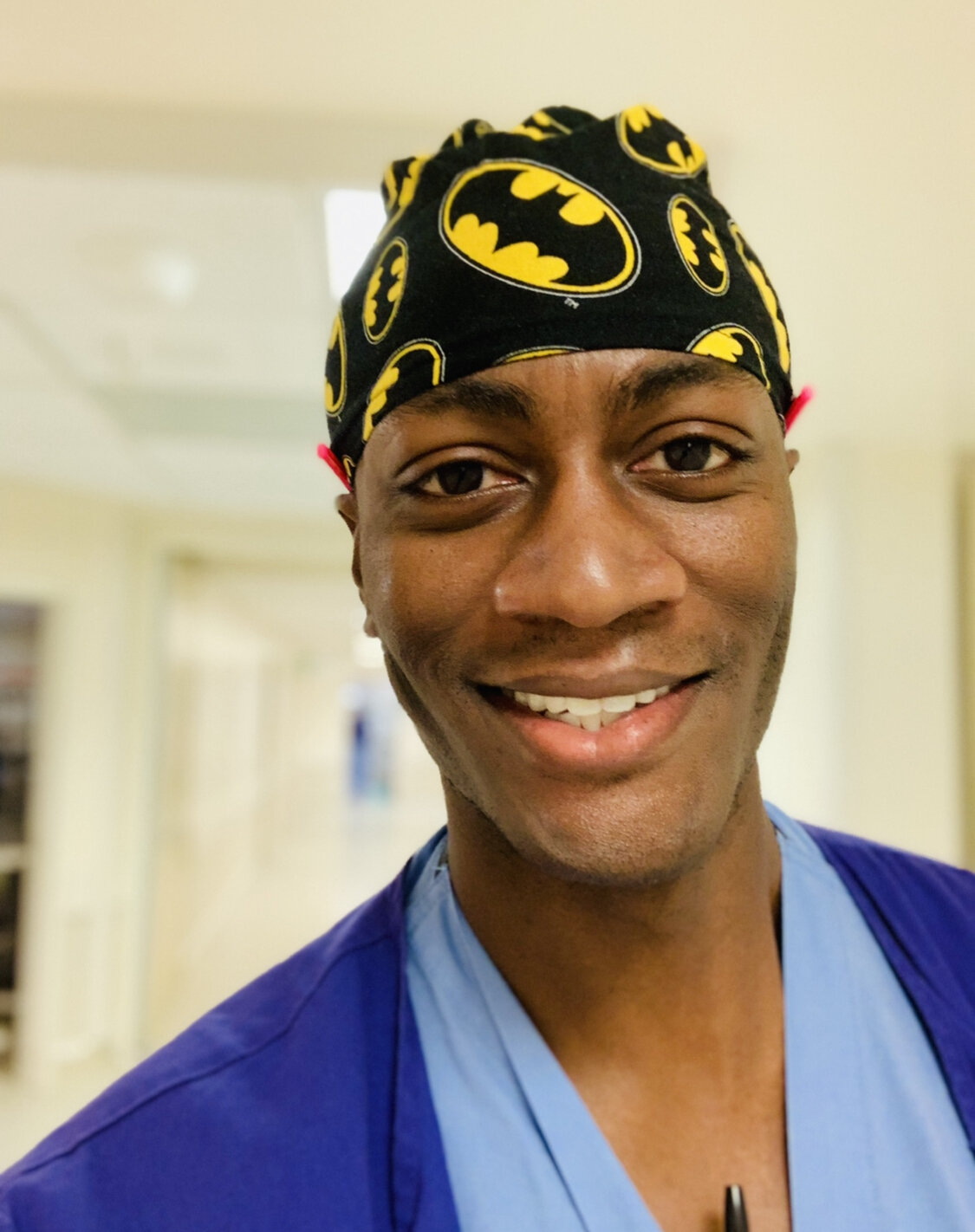My Black vote matters equally whether I cast it in my white lab coat or in a hoody
By Jason L. Campbell Special to The Seattle Times, Oct. 31, 2020
I voted in Atlanta, Georgia, in 2008, and in Washington, D.C., in 2012. I voted in Columbus, Ohio, in 2016 and this year, I will vote in Portland. The years and the cities may change, but my dreams and racial identity do not. The first time I voted, I remember hearing the voice of my grandmother, Florence E. Adams, who as a Black woman spent many years of her adult life dissuaded to vote through tactics and barriers still seen today. Even now, her words echo every time I see a ballot box: “You can never be too tired to vote.”
Today, a Black man in a white coat, I walk the hospital corridor in Portland. A stethoscope is in my left pocket and a pager fastened to my right hip. A hands-free communication device is pinned to the collar of my light blue scrub top as the nurse calls, “Dr. Campbell to come to the patient’s bedside.” Later today, when I cast my vote, I will not be wearing my white lab coat but rather a hooded sweatshirt. The difference in how I am treated in a hooded sweatshirt compared to my white lab coat is a necessary reminder of why this vote matters.
In 2016, I was a medical student in Columbus, Ohio. Politically, Ohio is a puzzle mixed equally with progressive and conservative pieces. A few weeks before the 2016 election, I attended a Buckeyes football game at Ohio Stadium. It was a significant game I had been excited about the entire week. Yet, my enthusiasm diminished as the national anthem began when a white man wearing a MAGA hat mocked Colin Kaepernick for kneeling in protest of police brutality. Only a few short breaths after, he cheered for the young Black men on the field wearing his beloved scarlet and gray. His view of Kaepernick as a Black man was different from how he viewed the players on the field. The contrast reminded me how much further we have to go and how unattainable the target we hope to reach is without voting.
In 2012, I started a premedical program in Manassas, Virginia, less than an hour from my hometown of Washington, D.C. A different political climate greeted me in Manassas. Mitt Romney signs were prominently displayed on nearly every street, adorning the lawns of many homes. I sat next to three classmates — Black men — as we closed our textbooks to watch Bill Clinton take the stage to make the case for the incumbent, President Barack Obama.
“I want to nominate a man cool on the outside but who burns for America on the inside. I want a man who believes with no doubt that we can build a new American dream economy driven by innovation and creativity …,” Clinton said. On that evening, Clinton was addressing our country, but it felt as though he was speaking directly to us. Four Black men aspiring to be doctors, we burned with the same ambition that inspired a young Obama.
I recall in 2008 often wearing a hoody to class, hoping one day to exchange my sweatshirt for a white coat. I was 19-years-old, one year older than the minimum age required to vote. While this was the first time I had lived away from the safety of my Washington, D.C., home, Atlanta was considered to be a haven for Black people, a proud pocket of Black America deep in the conservative South. Long lines greeted me that warm November day as I approached the polling place with my breath half held at the possibility of electing the first Black president of the United States of America. My strongest memory from the election was observing my friend, standing on the stairs leaning against the banister, with tears streaming down her face. We all watched as our country elected the Black junior senator from Illinois president of the United States.
This was a moment of celebration, but more importantly a moment of reflection. I reflected back to images of my grandmother from the 1950s; the fortitude with which she stood hours in line to cast her vote for issues similar to the ones many Black people still face today. Like my friend on the stairs, I know on that election night my grandmother was sitting in her rocking chair wiping away her own tears in disbelief.
Whether cast wearing a hoody or a white coat, there is power in every vote, if only we believed it.
